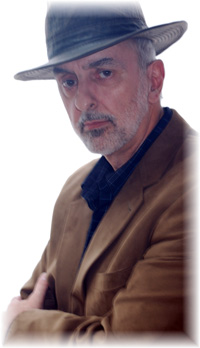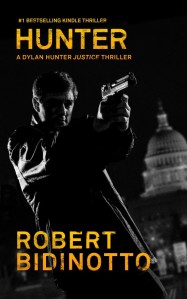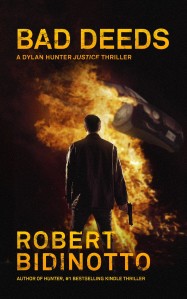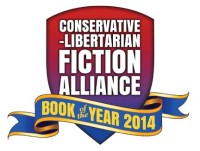Photos by Brian Killigrew
Vince Flynn has spun many compelling yarns, but his own story may be the most inspiring. It’s the tale of a kid from a big Midwestern family who battled dyslexia to become—through sheer grit and determination—one of the world’s best-selling novelists.

Portrait of Vince Flynn (c) by Brian Killigrew
The fifth of seven children, Flynn was born in 1966 in St. Paul, Minnesota. He graduated from St. Thomas Academy in 1984, then took a degree in economics from the University of St. Thomas in 1988. After a couple of years as an account and sales marketing specialist with Kraft General Foods, he became an aviation candidate with the United States Marine Corps. Just a week before Officers Candidate School, he was medically discharged from the aviation program due to injuries sustained in his youth.
Disappointed, Flynn took a job with a commercial real estate company in the Twin Cities. But he’d long nurtured the writing bug, and during spare hours he outlined an idea for a book. After two years, he took the biggest gamble of his life. He quit his job, moved to Colorado, and began working full time on what would eventually become his first novel.
Bartending at night, Flynn wrote during the day. He persisted through five long years and more than sixty rejection letters before taking another huge career gamble: He decided to self-publish and self-promote his novel. It worked. The book soared to number one in the Twin Cities, and a week later, Flynn had a new agent and a major publishing deal. Re-released in paperback by Pocket Books, Term Limits—a frightening thriller of political revenge—hit the New York Times bestseller list.
All of his subsequent thrillers have become runaway international bestsellers, too. They include Transfer of Power, The Third Option, Separation of Power, Executive Power, Memorial Day, Consent to Kill, Act of Treason, Protect and Defend (Flynn’s first title to debut at number one on the New York Times fiction bestseller list), Extreme Measures, Pursuit of Honor, and American Assassin.
Flynn’s gripping political thrillers are centered in the post-9/11 world of terrorism and the threat of Islamic fundamentalism. His astonishing research and startling insights into that world—drawn from sources embedded deep within political, military, and intelligence circles—have made his books bedside reading for presidents, foreign leaders, and the global intelligence community. His tales also caught the attention of the producers of the hit Fox TV series “24”: He became a story consultant for season five of the show. Meanwhile, Flynn still lives in the Twin Cities with his wife and three children. (See the afterword to this interview for updated information.)
On November 28, 2007, I traveled to New York City to meet Vince Flynn at Seppi’s restaurant in the elegant Le Parker Meridien Hotel on West 57th Street. Over lunch, we had a wide-ranging discussion about Flynn’s life, and his fascinating—often surprising—views on publishing, philosophy, politics, Hollywood, the War on Terrorism, and fiction writing.
As was the case with my interview with Lee Child, I conducted this one in my capacity as then-editor of The New Individualist, the magazine of The Atlas Society; the interview is reprinted here from the March 2008 issue with their permission. And once again, as was the case in the Lee Child interview, terrific New York City photographer Brian Killigrew captured the interview in candid images.
~*~
“We needed our guy over there, assassinating these guys before they hit us . . . this kind of raw, loner, individualistic guy who was going go out there and lay it all on the line.”
—Vince Flynn
The Vigilante Author: You were born in the Minneapolis area?
Vince Flynn: St. Paul. Fifth of seven children. Five boys, two girls.
The Vigilante Author: Everybody in a large family seems to have an assigned role, and I wonder what yours was.
Flynn: My assigned role was the eldest of what we referred to as “the three little ones.” I was in charge of the three little ones. But I still had the privilege of having the tar beat out of me by my older brothers.
The Vigilante Author: Hey, what are older brothers for?
Flynn: And older sisters, actually—until I hit about twelve years old or so, and I could beat them up.
The Vigilante Author: What did your parents do?
Flynn: My mom was a wildlife artist, actually fairly successful. My dad taught at St. Thomas Academy in St. Paul, where he went to high school. He was an English teacher there and coached basketball, football, and baseball. He left and went to Borg Warner Educational Systems in the mid-’70s, and then went to work for Control Data for about fifteen years.
The Vigilante Author: Were you a math or verbal guy as far as school goes?
Continue reading →








 Photo (c) by Debbie Scott
Photo (c) by Debbie Scott




